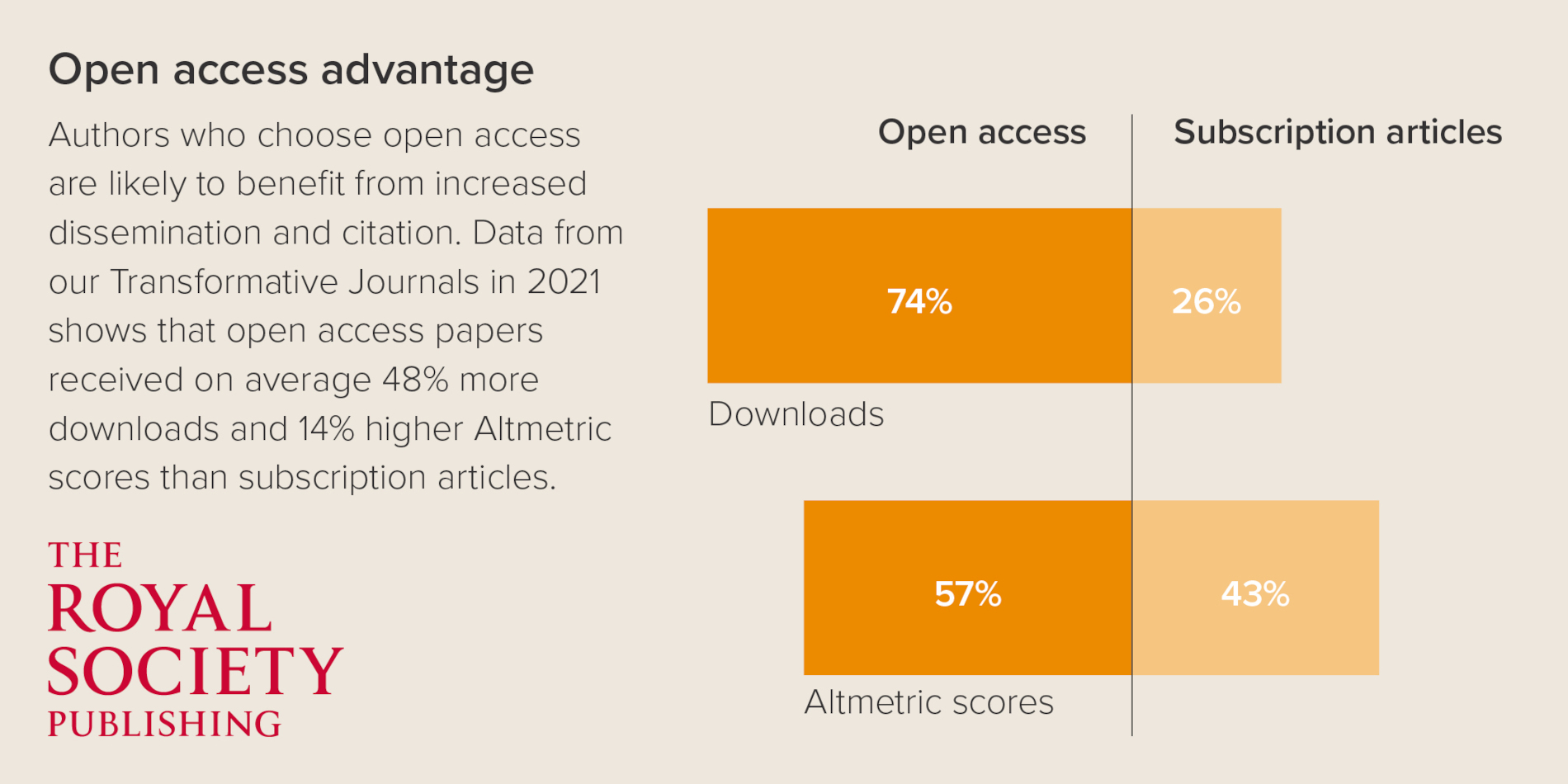International Open Access Week endeavours to make openness the default for research and to ensure that fairness is at the centre of this work. Shalene Singh-Shepard, Senior Publishing Editor of Proceedings B, shares why you should consider publishing open access.

Many researchers are now required by their funder or institution to publish their work open access, but this model benefits all authors with open access publications likely to benefit from increased dissemination and citation. With this in mind, we strive to make publishing open access in Proceedings B simple and affordable. Proceedings B meets all funder mandates as a Plan S compliant Transformative journal that publishes open access articles with a CC-BY licence. Authors at institutions signed up to our Read & Publish agreements benefit from free open access publishing and we offer a competitive Article Processing Cost (APC) of £1700.

Open access refers to the open, available publication of research papers such that anyone is able to access and re-use them. Traditionally, published research papers were only available to those who could gain access via a library or individual subscription. By opening up research to everyone, open access allows for a better, wider reach while promoting better engagement and collaboration. Open access articles are denoted by an open padlock symbol and anyone is able to access these publications free of charge.
The Royal Society publishes eight hybrid journals, including Proceedings B, under a so-called ‘hybrid’ open access model. In this model, any researcher is free to submit an article and to choose whether to publish open access or behind a paywall and the author is also free to deposit their accepted manuscript in an open repository. We plan to transition Proceedings B to a fully open access model when 75% of articles are being published open access under the Transformative Journal model.
Since the open access movement first emerged, the traditional funding model has been an APC. This payment usually came directly from the authors – from grant money. However, the high APC costs can be restrictive, and in recent years there have been efforts to find alternative models of funding. Most notably this has come through transformative deals whereby the cost of open access publication will be covered by agreements with libraries or consortia. Proceedings B authors have a few options to cover the costs of publication. Along with the standard APC payment option, we have a number of Read and Publish agreements with various universities all over the world, which allow researchers to publish with no APC fee at the point of use. If you are the corresponding author from an institution signed up to one of our Read & Publish agreements, all open access fees and invoices are automatically covered by your library. Alternatively, researchers at institutions signed up to our open access membership scheme can save 25% on APCs.
We believe that opening the record of science to the widest possible audience and making that record re-usable will accelerate the generation of knowledge and accelerate discovery. If you choose to publish with us, your article will be deposited in PubMedCentral by the journal on your behalf. You will also benefit from a liberal licensing and re-use policy through Creative Commons licence CC-BY 4.0. This licence permits free re-use by anyone without the need to ask permission, provided that they cite the original source of the article. This is vital to ensure others can build on your work while giving you credit.
Practices are emerging which open up the research and publication process even further – including open data and open peer review. The journal now operates transparent peer review, which helps to open up the peer review process on published articles. Under this model peer review reports are published with their corresponding articles, and the referees are given the option to reveal their identity if they wish to do so. By making peer reviews available, other researchers can read a wide range of reviews and hopefully reflect on their own peer reviewing practices as a result.
Benefits of publishing open access in Proceedings B
• Transformative Journal status
• Increased dissemination and citation
• CC-BY licence
• Plan S compliant meeting all funder mandates
• Competitive Article Processing Cost (APC) of £1700
• Transparent peer review
• Read & Publish agreements with many institutions
Find out more about publishing open access with us.
Image Credit: Andrey Popov, iStock images




